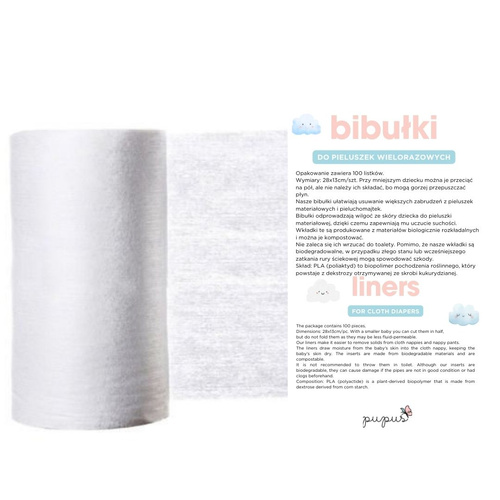5 things you should NEVER do to your diapers
1. Boiling
Pocket diapers and covers are coated with a thin layer of laminate, which can delaminate or develop defects when exposed to high temperatures. If the diaper is new, maybe nothing will happen, but if you have been using it for a long time, washing it and spinning it hundreds of times – you can be sure that boiling will destroy the laminate layer. This applies both to setting the washing machine to 90 degrees and boiling in a pot. Boiling will also deform plastic snaps and will likely cause the elastics in the legs and on the back to snap. Definitely not worth it!
2. Ironing
An iron has an even higher temperature than boiling water. It can damage the PUL, especially the laminate on the inside. Ironing cotton flats, on the other hand, is unnecessary because it flattens the fibers and thus reduces absorbency.
*the exception is ironing delaminated PUL to reattach the laminate, preferably through a cloth and with help from another person
3. Washing with soap or soap nuts
It may seem that soap perfectly removes dirt and grease. And it does, but soap is very difficult to rinse out and remains in the diapers. Such “soap buildup” effectively greases synthetic fabrics like microfleece, coolmax, and microfiber, preventing moisture from passing through and reducing absorbency. Build-up also forms inside inserts and reduces their absorption. And then, unfortunately, diapers leak. That’s why it’s important to choose a detergent for cloth diapers that contains less than 5% soap. Greasing does not affect natural fibers – you can safely pre-wash them with gall soap without needing to degrease them later.

*Forbidden soap flakes
4. Using fabric softeners
I know most of you love the beautiful smell and softness that fabric softeners give. They are designed so that a small amount remains in the fabric, but this unfortunately has the same effect as soap – fibers get coated, absorbency and breathability decrease. To make diapers soft, it is enough to rub them between your hands after drying or pull them along the edge of a table. A nice smell can be achieved by adding a few drops of your favorite essential oil.
5. Regular use of greasy diaper creams
Many moms using disposables apply diaper cream at every change. With cloth diapers, this is not necessary. The skin breathes better, and you probably change the diaper slightly more often anyway. Creams can grease synthetic diaper materials – just like soap and fabric softeners, they will reduce permeability. If your baby does get a rash and cream is necessary, we recommend two solutions:
- replace cream with potato starch or medical wool, which will not harm the diaper
- use disposable liners, preventing direct contact with the diaper – the cream stays on the liner and does not grease the diaper
- use natural inserts that cannot be greased, and unrefined shea butter or coconut oil, which wash out easily from natural materials

While researching this article I came across ideas of putting diapers in the microwave or dishwasher
Recommended



